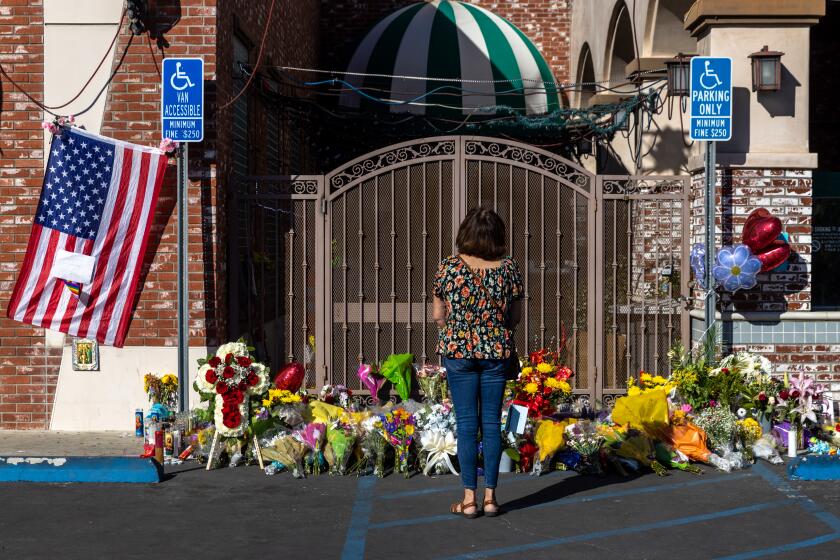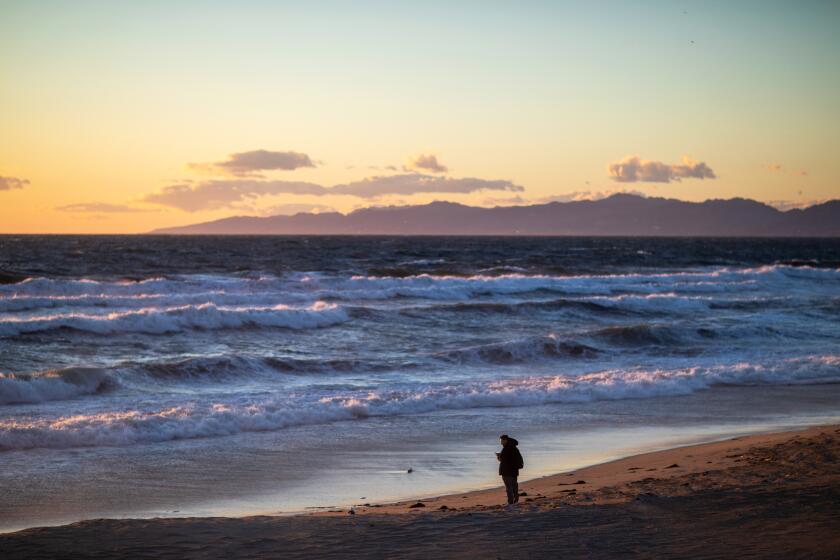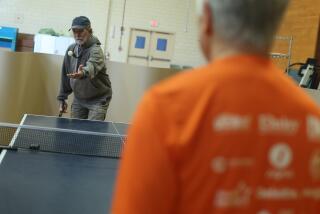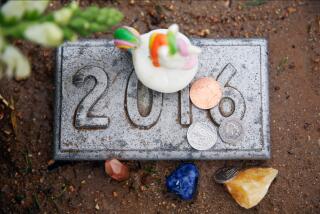Column: They’re facing an ‘epidemic of loneliness and isolation,’ but solutions are within reach
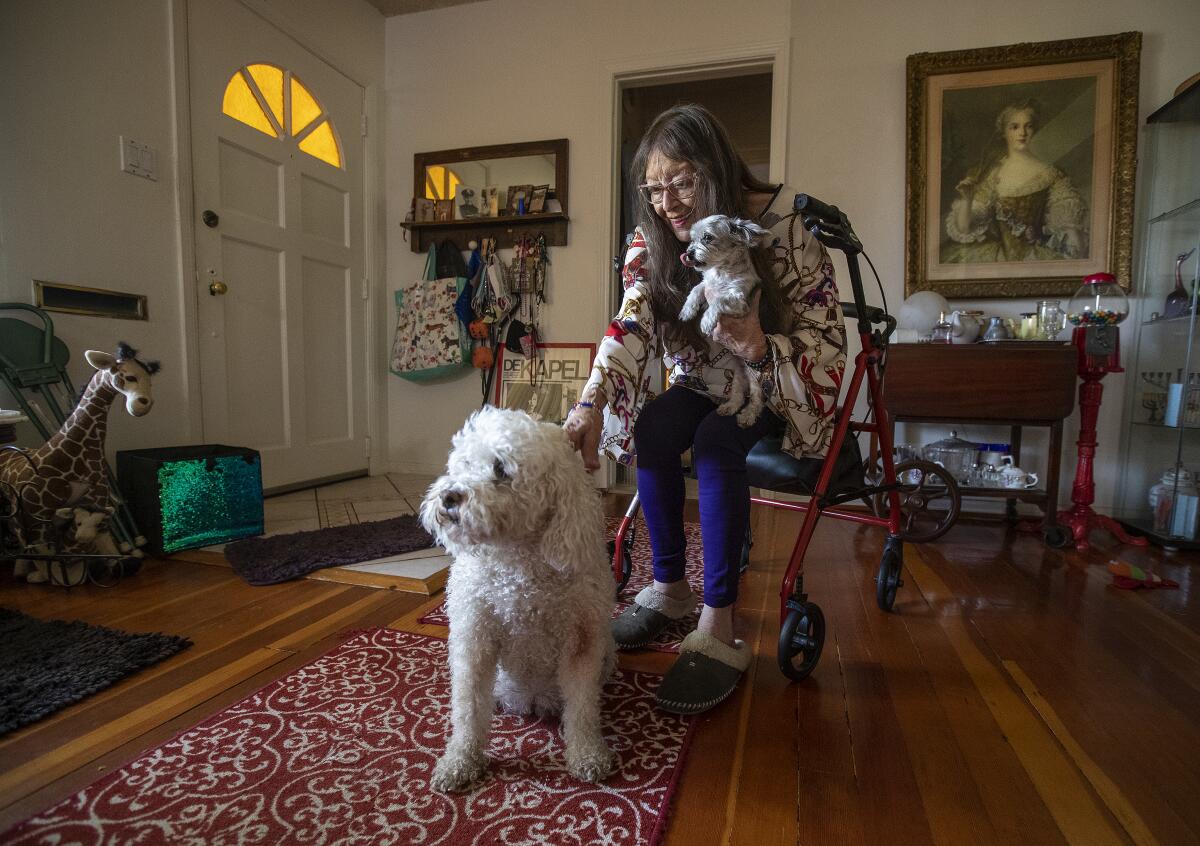
When his wife, Diane, died two years ago, Stanley Goldstein was shattered.
“I couldn’t even go in the house,” Goldstein told me.
I thought he meant it figuratively, but Goldstein went on to say he literally could not bring himself to enter the Palmdale home he had shared with his wife, who’d been suffering from Parkinson’s.
“I was living in a Suburban,” he said. “I mean, here I had this 3,000-square-foot house, and I’m living in the parking lot of the supermarket.”
Goldstein, 74, a former teacher, recovered enough to seek some companionship. He met another woman, but she soon became a stranger to herself.
“Alzheimer’s,” he said. “It came on real quick.”
California is about to be hit by an aging population wave, and Steve Lopez is riding it. His column focuses on the blessings and burdens of advancing age — and how some folks are challenging the stigma associated with older adults.
About a year ago, at a coffee shop, Goldstein shared his despair with a friend who recommended he check out the Sherman Oaks East Valley Adult Center. It was the beginning of his turnaround.
“I met more people here in two weeks than in 23 years in Palmdale,” said Goldstein, who drops in for lunch, hooks up with friends and participates in a conversation group with a couple of dozen people.
And what do they talk about?
Loss and depression, current events, the state of the city.
The arc of their lives.
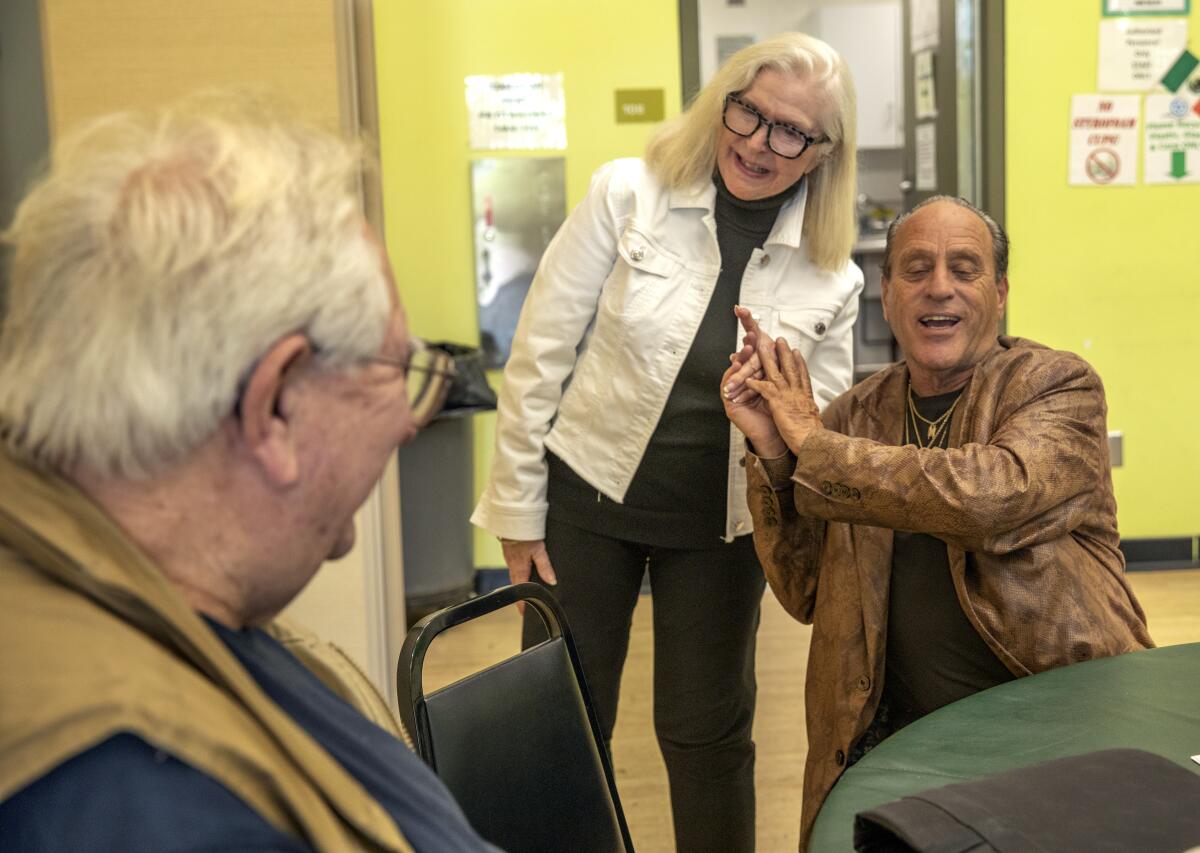
I learned about Goldstein from Beverly Ventriss, the president and chief executive of Valley InterCommunity Council, which runs the adult center. She shared the story of an Army veteran, now deceased, who lived alone and waited patiently each day for someone from VIC to deliver a meal to his door, then played his harmonica as a thank you.
“An isolated older adult can lapse into depression, which has become the single most significant social determinant of declining health,” Ventriss said.
The U.S. surgeon general recently amplified that message, citing an “epidemic of loneliness and isolation” that has grown even as the COVID-19 pandemic has waned, increasing the risk of heart disease, stroke, dementia and premature death. In announcing a campaign to rebuild social connections, Dr. Vivek Murthy laid out a national strategy that sounded a lot like what VIC — a nonprofit that operates on government funding, grants and donations — has been doing for years in the San Fernando Valley.
Isolation is no small matter in the rapidly aging population, and the depression that results often goes undiagnosed and untreated.
The council runs four centers in partnership with the city of Los Angeles, like the one where I met Goldstein. (The others are in Van Nuys, Pacoima and Northridge.) Every year, thousands of people take advantage of VIC’s meals and transportation, medical screenings and social, educational and recreational activities. Ventriss says taking meals to the homebound is a critical part of the mission, but she strives to draw people to the adult centers, not just to connect but to break down barriers.
“Given our culture today, those moments around the table are how you resolve a lot of the prejudice we know is rampant, and those people go home and share those insights with their families,” Ventriss said. “Breaking bread at VIC is much more than just enjoying the casserole of the day.”
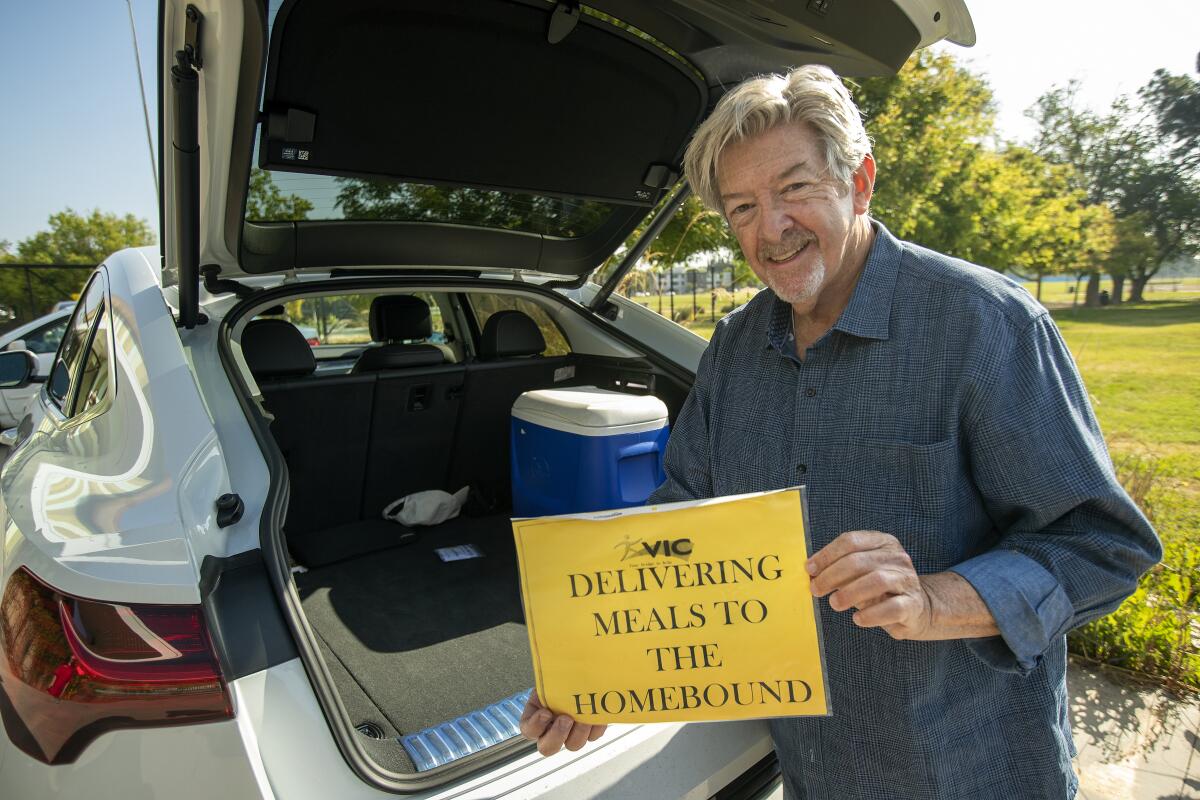
On a recent morning at the Sherman Oaks site, Bob Feldman, a volunteer, was one of several drivers loading food into their vehicles for delivery to Valley residents who are homebound. Feldman, a 74-year-old retiree, told me he heard about the meal delivery program two years ago, when he was looking to escape pandemic boredom.
“I didn’t want to be cooped up,” Feldman said. “So I contacted them, and they said, ‘Come on down.’ I just wanted to do something good for people, and it gets me out of the house. So it’s a win-win.”
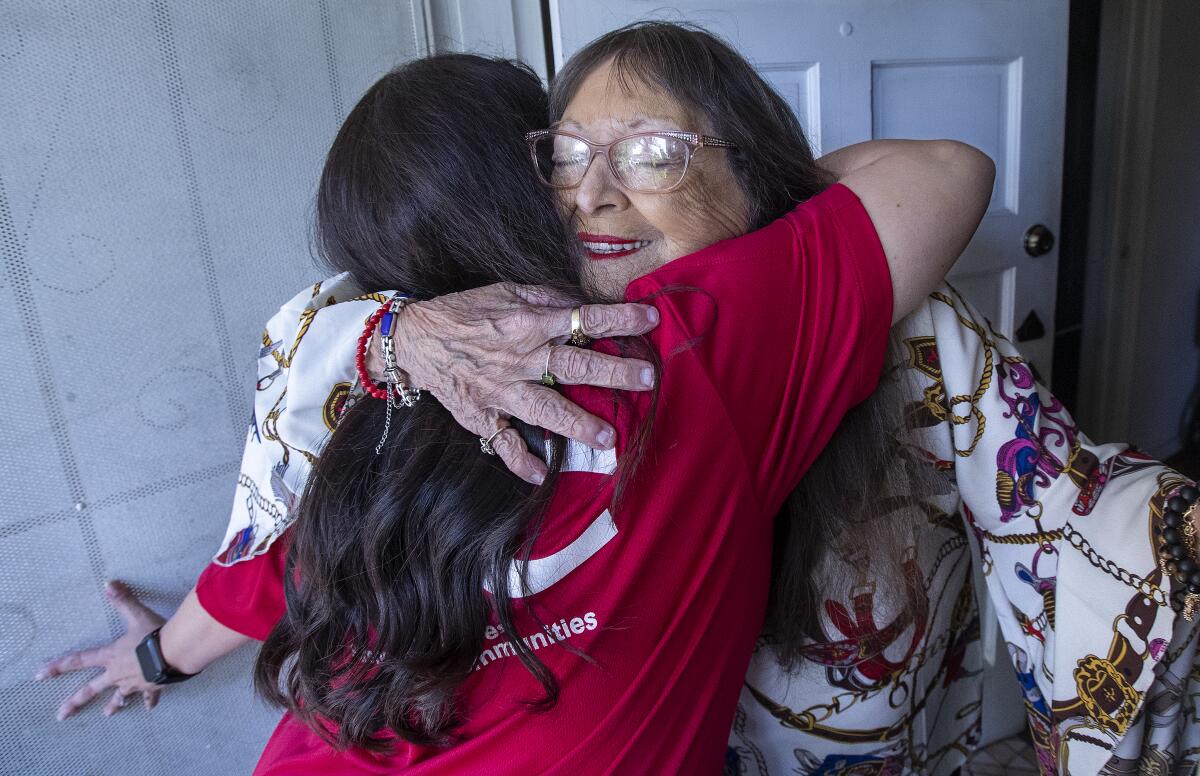
Karen Kochara, a former hairdresser, is a paid staffer who delivers about 25 meals a day, but she does more than knock on the door and hand over the food to her clients. She monitors their well-being, listens and sometimes runs errands.
“Some of them are widows or widowers who don’t have children nearby, or they never had children,” Kochara said. “Some of them have outlived friends and family, and most of them say they never thought they’d be alone.”
At one of her first stops, in Valley Village, Kochara delivered meals to five residents of an apartment building for older adults. One of the five, Joan Chester, told me she lost her husband to cancer when he was 43, but decades later, she doesn’t think of herself as being alone. Her son lives just a few minutes away, and she sees him and his family regularly.
“He’s working, but he calls me every day. I think it’s funny in a way, because he calls me, I think, to see if I’m still alive,” said Chester, who sat next to her walker and a table of amber-colored medicine vials arrayed like pieces of a chess set.
Chester handed a $5 bill to Kochara and asked if she’d mind picking up some cranberry juice for her at the store.
“You got it,” Kochara said.
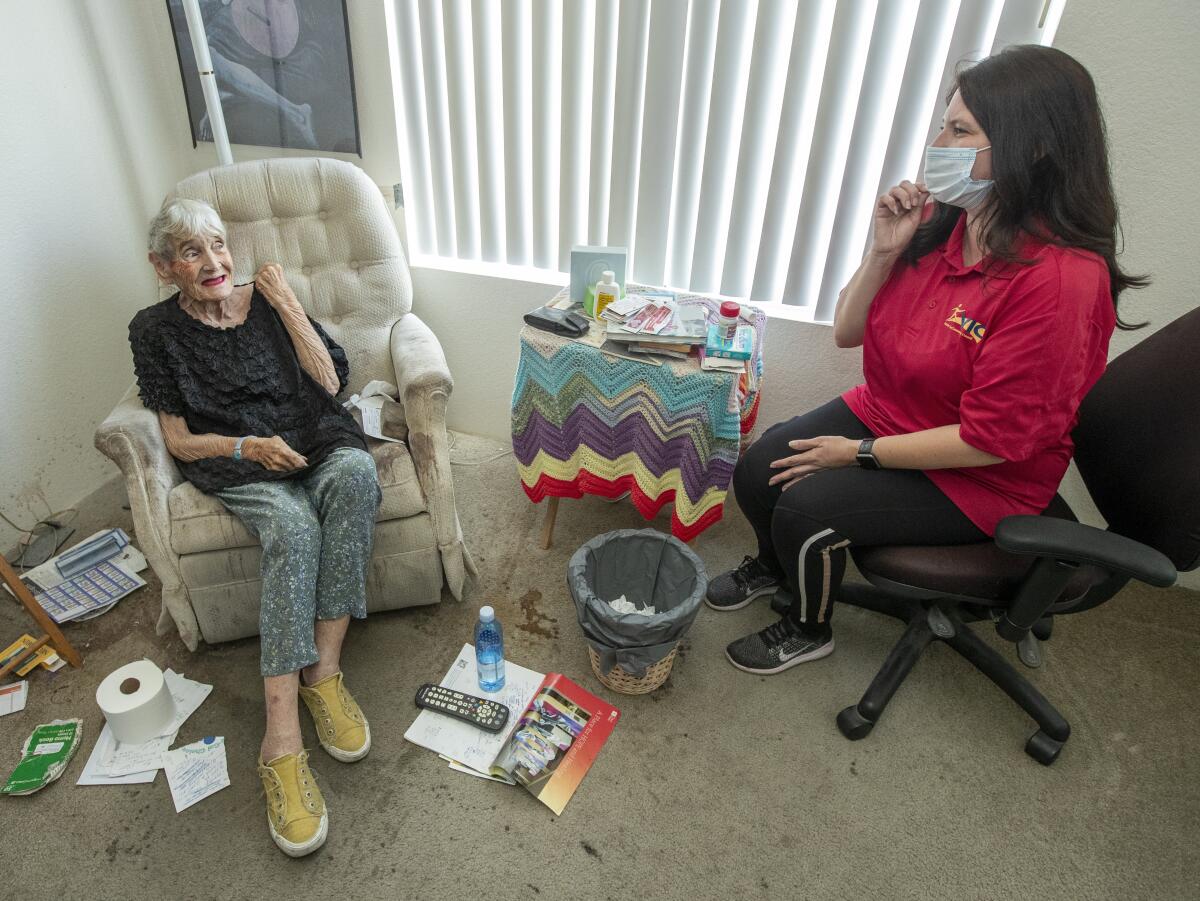
Chester thanked her and added one more item to the shopping list: ice cream. She then told a bawdy story that’s not fit for print. It was about a dispute with a neighbor across the hall, who incorrectly believes Chester is having a wild romance. I didn’t interview the neighbor, so I’m not taking sides.
I asked Chester if she thinks the people in her building struggle with loneliness.
“I brush into them all the time,” she said. “And I try my best to console them, but nothing is going to help them, really. When you’re alone, you’re alone. And no matter what anyone says to you, you’re still alone.”
The VIC website, where anyone can find out how to volunteer, donate or sign up for programs, reminds us of the enormity of the situation: “With 10,000 boomers turning 65 every day for the next nine years, the need for meaningful connections and supportive services is greater than ever.”
Maxine Shelley, another of the recipients on Kochara’s meal delivery route, is a prime example. Shelley lost her husband of 46 years, Richard, about a year and a half ago.
“There was no time to say goodbye,” Shelley told me in the dining area of her North Hollywood home, where Richard, a Vietnam veteran, collapsed. “I heard a big thud, and I swear, I knew my life was different forever.”
Shelley suffers from congestive heart failure, and although she was feeling weak, she was eager to tell stories about Richard’s career as a drummer and sound engineer. He worked with some of the biggest bands of the ’70s and ’80s, including many who performed at the old Starwood Nightclub in Hollywood. She led me to her backyard, where she often sits on a bench in a garden planted as a tribute to her husband, with crosses rising over the flowers.
Shelley said she was a comedy writer for years, and she rattled off the names of people she worked with. But most friends and family are gone, which makes daily visits from Kochara so meaningful.
“She’s as sweet as sugar,” said Shelley, who told me Kochara’s husband even came by to trim a dangling tree branch. “And when she’s got a day off, I’m sad. And I’ve made her jewelry. As a matter of fact, I made her a necklace, and she went to visit her mother, and her mother loved it. So she gave it to her mother, and then I made her another one.”
Before I left, Shelley had a request.
“If you know anybody that’s old like me, and, you know, needs a friend, I would love that.”
steve.lopez@latimes.com
More to Read
Sign up for Essential California
The most important California stories and recommendations in your inbox every morning.
You may occasionally receive promotional content from the Los Angeles Times.

